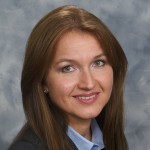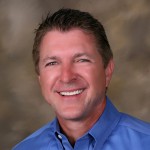
Dennis Dachtler
Dennis Dachtler is a respected financial planner, managing more than $150 million in assets. As he reviewed the reports on the second quarter of the year, Dennis Dachtler made a few observations about the economic outlook for the country. Recently, Dennis Dachtler talked to Interviewing Experts about the results of the past quarter.
Interviewing Experts: Welcome, and thank you for joining us today. To begin with, are you concerned that the stock market was down in the second quarter?
Dennis Dachtler: Well, overall the Dow was up 5.4% when you look at the entire first half of the year.
Interviewing Experts: But economists are concerned, based on what happened last year at this time, aren’t they?
Dennis Dachtler: Yes, that is true. However, there were several factors present last year that aren’t present this year.
Interviewing Experts: Those factors are…?
Dennis Dachtler: Among other things, there was a Congressional standoff last year regarding the debt ceiling.
Interviewing Experts: What are you thoughts about the upcoming election–do you expect that to have a negative impact?
Dennis Dachtler: It’s not completely clear, however I will point out that we aren’t operating under the same chaotic uncertainty as last year at this time.
Interviewing Experts: What about the instability of current policy?
Dennis Dachtler: Economists are worried about inflation. What the public needs is more clarity on policies to help boost confidence and, subsequently, spending, which has previously led to financial growth.
Interviewing Experts: How are things looking for the rest of the year?
Dennis Dachtler: Recovery has been incredibly slow since 2009 and this isn’t expected to change during the remainder of this year.
Interviewing Experts: What is causing the persistently high unemployment rate?
Dennis Dachtler: The theory of many economists is that the lack of predictability on policy is to blame.
Interviewing Experts: What is your perspective on this?
Dennis Dachtler: What creates uncertainty is not sticking to policy. Many economists believe consistency is key to building consumer confidence.
Interviewing Experts: How can Congress accomplish that?
Dennis Dachtler: Rules-based policy can help provide the basic guidelines consumers and business need to succeed.
Interviewing Experts: Some people feel that too many rules take away freedom.
Dennis Dachtler: Well I tend to believe quite the opposite. The laws should be built to preserve and encourage freedom. Laws must first be in place before there can be freedom.
Dennis Dachtler runs Dachtler Wealth Management, a financial management firm that focuses on helping clients find financial freedom. In addition to debt and asset management, Dennis Dachtler also helps clients with retirement planning and investing. Learn more at www.dachtlerwealth.com
Securities and investment advisory services are offered solely through Ameritas Investment Corp. (AIC). Member FINRA/SIPC. AIC and Dachtler Wealth Management are not affiliated. Additional products and services may be offered through Dennis Dachtler or Dachtler Wealth Management that are not offered through AIC.
This is not an offer of securities in any jurisdiction, nor is it specifically directed to a resident of any jurisdiction. As with any security, request a prospectus from your Registered Representative. Read it carefully before you invest or send money. A Representative from Dachtler Wealth Management will contact you to provide requested information. Representatives of AIC do not provide tax or legal advice. Please consult your tax advisor or attorney regarding your situation. Securities products are currently limited to residents of AL, AR, AZ, CA, CO, FL, GA, IN, KS, LA, MN, MO, NC, NE, NM, NV, OR, PA, TN, TX, UT & WA.




